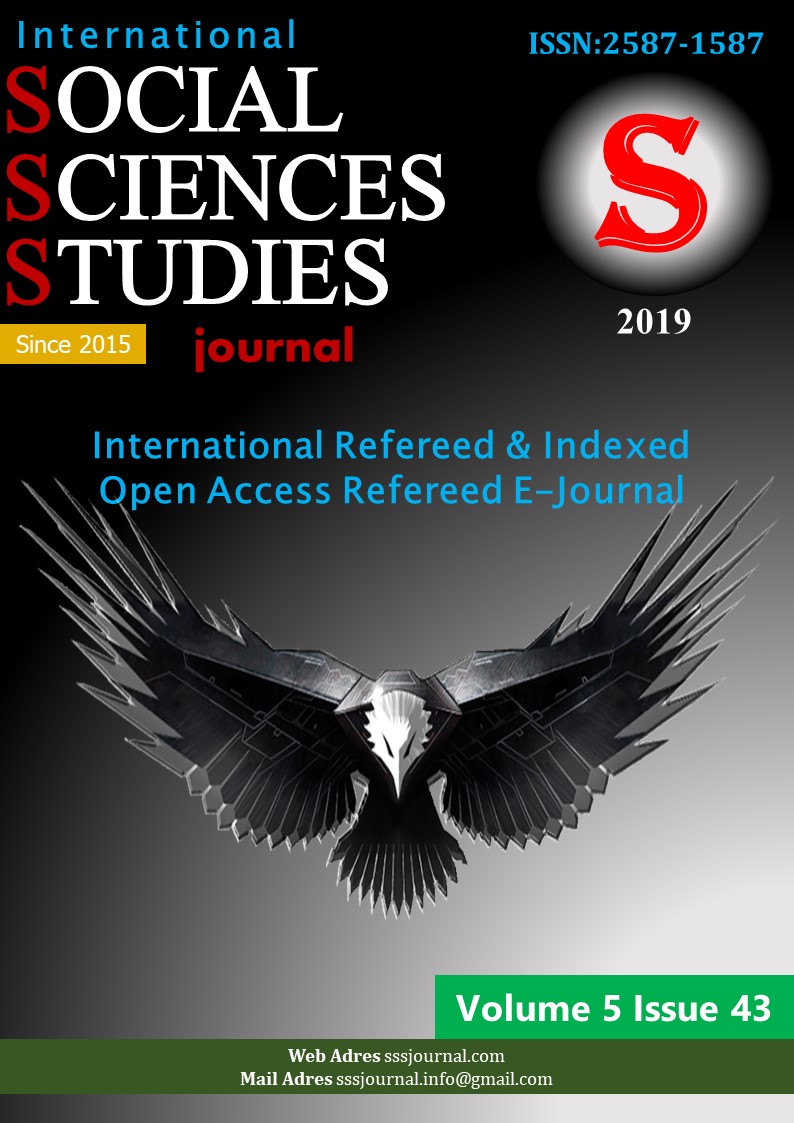İş-Aile ve Aile-İş Çatısmasının Çalışanların İş ve Yaşam Tatminleri Üzerindeki Etkisi: Kamu Kurumunda Bir Araştırma
Author :
Abstract
Küreselleşmeyle birlikte iş yaşamı ve iş yapma pratikleri de hızla değişmiştir. Çalışanlar yoğun iş temposunda çalışmakta ve bunun sonucu olarak da stres çalışmanın bir parçası haline gelmektedir. Yoğun çalışma temposu aile yaşamını da etkilemektedir. İş ve aile hayatı bireyin hayatında önemli yer tutan birbirinden farklı iki alandır. İki alan da yoğun enerji ve zaman talep etmektedir. İş-aile ve aile-iş çatışması günümüzde çalışan bireyin karşılaştığı en önemli sorunların başında gelmektedir. Bu durum sadece çalışma verimliliğini düşürmekle kalmamakta, aynı zamanda bireylerin yaşam tatminlerini, dolayısıyla hayattan aldıkları mutluluğu da azaltmaktadır. Hem iş hayatının hem de aile hayatının dengeli bir şekilde yürütülmesi gerekmektedir. Bu çalışmada iş-aile ve aile-iş çatışmasının çalışanın iş ve yaşam tatminleri üzerindeki etkileri incelenmiştir. Antalya ilinde bir kamu kurumunda yapılan araştırmaya göre, iş-aile ve aile-iş çatışmasıyla çalışanların iş ve yaşam tatminleri arasındaki negatif yönlü bir ilişki olduğu tespit edilmiştir.
Keywords
Abstract
Business life and business practices have changed rapidly with globalization. Employees work at a busy pace and as a result stress becomes a part of the work. Intensive work tempo also affects family life. Work and family life are two different areas that have an important place in an individual's life. Both areas demand intensive energy and time. Work-family and family-work conflict is one of the most important problems faced by the working individual today. This not only reduces the productivity of the work, but also reduces the life satisfaction of the individuals and the happiness they receive from life. Both business and family life should be carried out in a balanced way. In this study, the effects of work-family and family-work conflict on employee's job and life satisfaction were examined. According to a study conducted in a public institution in Antalya, it was found that there is a negative relationship between work-family and family-work conflict and job and life satisfaction of employees.
Keywords
- Christen, M.; Iyer, G. & Soberman, D. (2006). “Job Satisfaction, Job Performance, and Effort: A Reexamination Using Agency Theory”, Journal of Marketing, January 70: 137-150
- Davis, K. & Nestrom, J. W. (1985). Human Behavior at work: Organizational Behavior, McGraw Hill, New York.
- Diener, E. d. (1984). “Subjective Well-Being”, Psychological Bulletin, 95 (3): 542-575.
- Edwards, J. R. & Rothbard, N. P. (2000). “Mechanisms linking work and family: Clarifying the relationship between work and family constructs”, Academy of Management Review, 25: 178-199.
- Frone, M. R. & Cooper, M. L. (1992). “Prevalence of Work-Family Conflict: Are Work and Family Boundraies Asymmetrically Permeable?”, Journal of Organizational Behavior, 13 (7): 723-729.
- Greenhaus, J. B. & Beutell, N. J. (1985). “Sources of Conflict Between Work and Family Roles”, Academy of Management Review, 10: 76-89.
- Greenhaus, J. H.; Collins, K. M. & Shaw, J. D. (2003) “The Relation Between Work-Family Balance and Quality of Life”, Journal of Vocational Behavior, 63: 510-531.
- Greenhaus, J. H. & Gary N. P. (2003). “When Work and family Collide: Deciding Between Competing Role Demands”, Organizational Behavior and Human Decision Processes, 90: 291-303.
- Hammer, L. B.; Allen, E. & Grigsby, T. D. (1997). “Work-Family Conflict in Dual-Earner Couples: Within-Individual and Crossover Effects of Work and Family”, Journal of Vocational Behavior, 50: 185–203.
- Hobfoll, S. E. (1989). “Conservation of Resources: A New Attempt at Conceptualizing Stress”, American Psychologist, 44: 513–524
- Hsu, Y. R. (2011). “Work-Family Conflict and Job Satisfaction in Stressful Working Environments: The Moderating Roles of Perceived Supervisor Support and Internal locus of Control”, International Journal of Manpower, 32: 233-248.
- Kasper, H.; Meyer M. & Schmidt A. (2005), “Managers Dealing With Work-Family Conflict: An Explorative Analysis”, Journal of Managerial Psychology, 20(5): 440-461.
- Leaptrott. J. & Michael. J. (2008). “The conflict between work and family roles: the effects onmanagers’ reliance on information sources in dealing with significant workplace events.” Journal of Behavioral Studies in Business, 15 (2): 1-12.
- Medley, M. L. (1976). “Satisfaction with life among person sixty-five years and olders”, Journal of Gerontology, 31: 448-454.
- Mullins, J. L. (2005). Management and organizational behavior, Pearson Education Limited, Essex.
- Netemeyer, R. G.; Boles J. S. & Mcmurran R. (1996). “Development and Validation of Work-Family Conflict and Family-Work Conflict Scales”, Journal of Applied Psychology, 81: 400-410.
- Powell, G. N. & Greenhaus, J. F. (2010). “Sex, gender, and decisions at the family-work interface”, Journal of Management, 36: 1011-1039.
- Premeaux. F. S.; Cheryl L. A. & Mossholder K. W. (2007). “Balancing work and family: A field study of multi-dimensional, multi-role work-family conflict”, Journal of Organizational Behavior, 28: 705– 727.
- Rathi, N. & Barath, M. (2013). “Work-family conflict and job and family satisfaction: Moderating effect of social support among police personnel. Equality, Diversity and Inclusion”, International Journal, 32: 438-454.
- Reitzes, D. C. & Mutran, E. J. (1994). “Multiple roles and identities: Factors influencing self-esteem among middle-aged working men and women”, Social Psychology Quarterly, 57: 313–325.
- Rice, R. W. (1984). “Organizational work and the overall quality of life”, Applied Social Psychology Annual, 5: 155-178.
- Shaffer, M. A.; Harrison D. A.; Gilley K. M. & Dora M. L. (2001). “Struggling For Balance Amid Turbulence on International Assignments: Work-Family Conflict, Support and Commitment”, Journal of Management, 27: 99-121.
- Small, S. A. & Riley, D. (1990). “Toward a multidimensional assessment of work spillover into family life”, Journal of Marriage and the Family, 52: 51–61.
- Voydanoff, P. (2002). “Linkages Between The Work-Family Interface and Work, Family, And Individual Outcomes”, Journal of Family Issues, 23: 138-164.
- Wilson, F. M. (1995). Organizational Behaviour and Gender, McGraw-Hill Book Company, New York.





